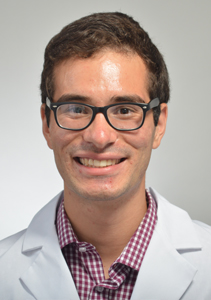
Why Social Justice Belongs in Medical Education
By Richard Brach ’22, UVM College of Medicine
March 6, 2020
The well-being of a country’s children is an important measure to track, as poverty in early years can have long-lasting consequences on children’s performance in school and their adult health status. The United States is considered one of the wealthiest countries in the world, but we have childhood poverty rates that are some of the worst. When compared to other countries with similar gross domestic products in a recent State of the World’s Children Report, the United states ranked 34/35, only ahead of Romania. Things look more grim when you look at childhood poverty by race in the U.S.: one in three Native American, one in four black and Hispanic, and one in nine white children live in poverty. To get a better idea of where we stand today and how best to proceed, we need to come to terms with how we got here.
Our nation has a deep history of racism and inequality. This country was built on the backs of slaves after which decades of lynchings, Jim Crow laws, and legal harassment crushed the possibility of upward mobility for African Americans. One example: 98 percent of the $120 billion in federal home loans distributed between 1933 and 1962 went to white homeowners, excluding African Americans from economic opportunity. This kept money and power in the hands of white Americans. Even after legislation banned discrimination in housing loans in 1968, the stage of structural racism was already set, permeating every aspect of our culture. In schools, African American students are suspended and expelled three times more often than white students, which is fueling the school-to-prison pipeline and mass incarceration. There are now more African American men in prison than there were enslaved in 1850.
Health care and STEM research are not immune to these challenges. We have a dark history of subjecting marginalized communities to cruel treatment and punishments. Most people are familiar with the Tuskegee Syphilis Experiments between 1932 and 1972 in which the U.S. Public Health Service knowingly withheld treatment from hundreds of African Americans that had contracted syphilis in order to study the progression of the gruesome disease. Even in Vermont, when we’re so proud of being the first state to abolish slavery, we have a racist history of eugenics, in which healthcare professionals forcibly sterilized Abenaki Indians between 1930 and 1957. We need to recognize that we, as current and future health care professionals, are just as fallible as anyone else.